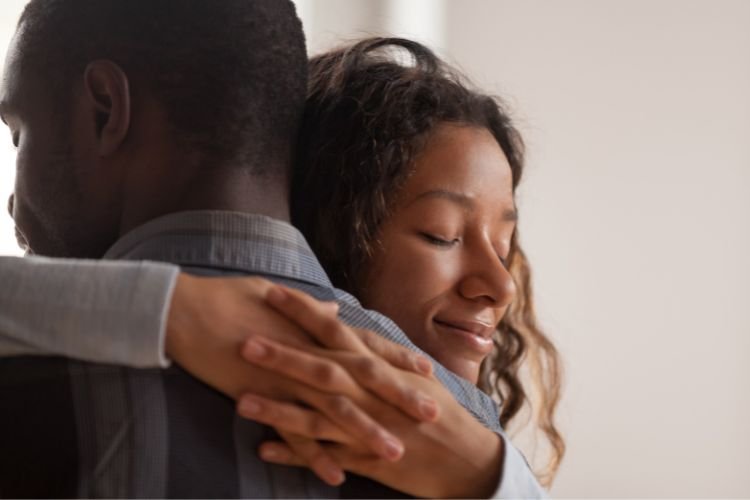When we talk about wedding wellness, the focus is often on the bride —and for good reason. From dress fittings to decor and every minute detail in between, the planning and decision-making tend to fall on her. But what about wedding wellness for grooms?
While they’re not usually picking out floral arrangements or struggling with seating charts, they’re dealing with their own unique set of pressures. Managing expectations, navigating family dynamics, and stepping into a life-changing commitment can take an emotional toll. So let’s pause and ask: How are the grooms doing?
Groomed for Wellness: Grooms Need Pre-Wedding Support Too
Let’s discuss some of the most common stressors on grooms I have noticed as a wellness-centered wedding planner, along with plenty of tips to ensure peace of mind in the planning process for both halves of the engaged couple.
1. The Pressure to “Hold It Together”
Many grooms feel pressure to be stoic, calm, supportive of their fiancée, and low-maintenance during the planning process. Society often paints grooms as composed and unaffected. They’re the steady rock amidst the whirlwind of wedding planning. But that expectation comes at a cost. Inside, they may be feeling nervous, overwhelmed, or disconnected.
The pressure to “hold it together” and be unfazed during the planning process can be isolating, especially when overwhelm or self-doubt creep in. Wellness for grooms starts with permission to feel and express emotions.
Nerves about standing in front of hundreds of people? Perfectly normal. Daunted by stepping into a lifelong partnership? Natural. Opening up about these feelings doesn’t make anyone less of a groom; it makes them human.
Encourage grooms to lean into their emotions instead of suppressing them. Suggest having open conversations with their partner or talking to someone they trust, like their best man, a sibling, or even a counselor. Feeling heard and supported can make all the difference during any emotionally charged time.

Having open conversations with a trusted friend can help grooms feel supported and heard.
2. Encourage a Pre-Wedding Wind-Down
The bachelor party gets a lot of attention, and while it’s undoubtedly fun, it is equally important to take time to wind down and relax before the wedding weekend. Some grooms may find peace in the great outdoors, while others might unwind at the gym. Whether it’s a weekend hike, a silent retreat, or a barbershop visit without wedding talk, grooms benefit from time to decompress. Make space for your partner to unplug and reset.
Better yet, create shared pre-wedding wellness activities. For example, dinners devoid of wedding planning, a couples massage, or an unplugged getaway. Even a simple activity like going on walks together can bring you closer and relieve stress. Stepping away from wedding-related conversations during this time can help you both feel grounded and reconnected before the big day.
3. Wellness Conversations Are Marriage Conversations
Talking about mental health, managing stress, and setting relationship intentions aren’t just “wedding things” — they’re marriage things. Encourage open dialogue early. Stress management and mindfulness aren’t just about getting through the ceremony itself; they’re about building habits and communication patterns that will carry over into married life.
A pre-marital coach, wellness check-in, or planning retreat can strengthen your emotional bond before vows are ever spoken. Communicating expectations, fears, and relationship goals will help you build a strong and lasting foundation.
These conversations don’t need to be formal or structured; they can happen over coffee, during an evening walk, or even while tackling wedding tasks together. The key is to nurture emotional connection and openness and to create a safe space where both partners feel valued and supported.

Conversations about mental health, expectations, and feelings help create a stress-free wedding while also building a strong foundation for your marriage.
4. Include Him in the Self-Care Narrative
Self-care isn’t just facials and journaling. For some grooms, it might be a workout plan, therapy session, or digital detox. The key is recognizing that wedding wellness looks different for everyone, and both partners should feel included in the conversation.
For some, self-care might mean carving out time for their passions, like woodworking, gaming, or cooking. For others, it could mean tweaking their workout routine or setting boundaries for screen time to avoid burnout. All of these forms of self-care are perfectly valid.
Wedding wellness isn’t a one-size-fits-all prescription. Grooms need to feel encouraged to define their version of self-care and to have that definition respected. Partners can support this by offering reminders and opportunities to pursue hobbies that promote stress relief and relaxation.

Encourage your groom to take the time and space needed to find stress relief in his hobbies and rituals.
The Key Takeaway
The healthiest weddings begin with two whole, well-supported individuals. While brides often have a network of support to lean on, grooms sometimes get overlooked in the wellness equation. Let’s normalize asking the groom, “How are you doing?” And not just during the toast, but throughout the journey. After all, wellness isn’t a gendered practice. It’s a relationship practice.







